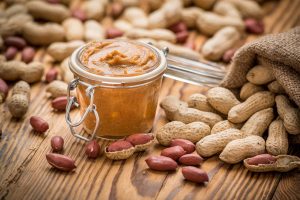New vaccine on the horizon
Scientists in America are getting closer and closer to creating a vaccine that prevents allergic reactions to peanuts.
Peanut allergies are a common concern in Australia, especially amongst children. The development of a vaccine is welcome news to sufferers, many for whom a fatal reaction is a real threat.
Food Allergies
Food allergies occur in 1 in 20 Australian children.
From 2006 to 2016, hospital admissions in Australia for severe allergic reactions doubled. According to a study by the Australian Society of Clinical Immunology and Allergy (ASCIA), in children aged between zero and four, admissions increased five-fold.
The Vaccine
The vaccine is being designed to change the way immune cells react to allergies.
The new vaccine, which is being developed by researchers in the United States, has been trialled successfully on laboratory mice. Once the vaccine was administered to the mice, via their nose, they had no obvious reactions to allergens for two consecutive weeks.
The two week lab trial, conducted by researchers at the University of Michigan, revealed the allergy was completely supressed rather than just the reaction being soothed.
Lead researcher Doctor Jessica O’Konek told Medical News Today that redirecting the body’s responses to allergens stops them reacting.
“Our goal is to use immunotherapy to change the immune system’s response by developing a therapeutic vaccine for food allergies,” Dr O’Konek said.
“By redirecting the immune responses, our vaccine not only suppresses the response but prevents the activation of cells that would initiate allergic reactions.”
How Do Food Allergies Come About?
“Food allergies are caused by a faulty immune reaction, wherein the body overproduces antibodies called Immunoglobulin E (IgE). This occurs as a result of a skewed immune response from immune cells called T helper 2 (Th2),” Dr O’Konek said.
Allergies are not hereditary and scientists are still baffled to as why allergens are dormant in some people and manifest in others.
Vanderbilt University Medical Centre researcher Dr Cosby Stone Jr told U.S News there appeared to be no real cause.
“The one that’s really hard to explain is a food allergy where you used to tolerate shellfish or nuts but then suddenly don’t,” Dr Stone said.
“Being an allergic person can put you at higher risk of developing a new allergy: 15 per cent of food allergies have an adult onset.”
Outgrowing Allergies
As we age, our immune systems becomes stronger and they develop a tolerance to less severe allergic ‘triggers’. While 1 in 20 Australian children have a food allergy, by the time they are adults, the ratio broadens to 2 in 100 adults.
Allergic reactions in children to milk, wheat and even eggs are usually ‘outgrown’ by the time they become adults, but allergies developed in adulthood, especially to foods like peanuts, are more than likely permanent.
The Next Steps
The current default for allergy sufferers is to be very cautious of what they consume and how their food is made, to ensure that they do not come in contact with their allergen triggers.
This new vaccine is a ground breaking step towards immunity for those who have allergic reactions to peanuts.





